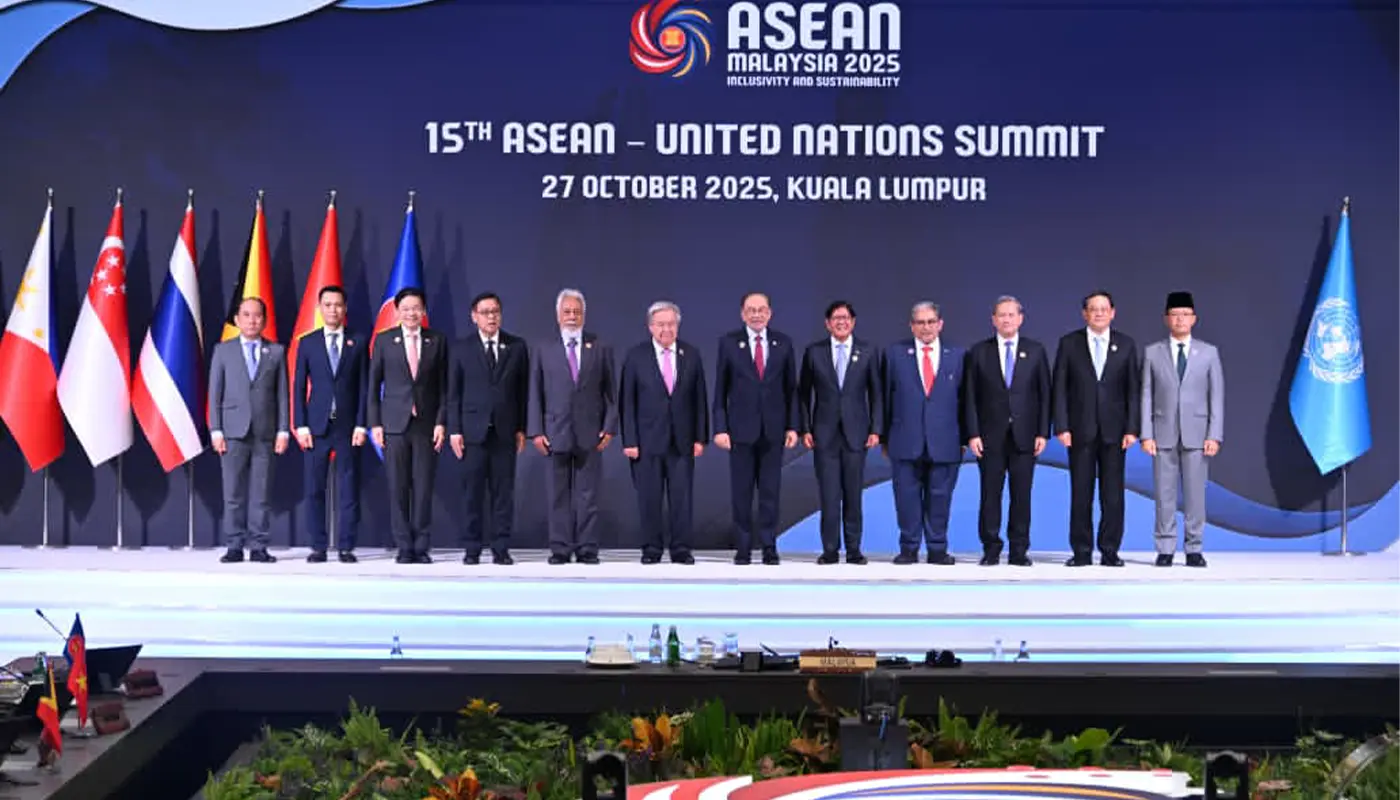KUALA LUMPUR – The 15th Association of Southeast Asian Nations-United Nations (ASEAN-UN) Summit convened today in Malaysia’s capital, heralding a renewed commitment by both sides to deepen their Comprehensive Partnership. The summit reaffirmed shared aspirations of peace, security, stability and prosperity underpinned by inclusive and sustainable development frameworks.
The meeting, attended by the ASEAN leaders, UN Secretary-General António Guterres and ASEAN Secretary-General Dr Kao Kim Hourn, welcomed the freshly adopted “Plan of Action 2026–2030” which will serve as a blueprint to strengthen cooperation and advance the realisation of ASEAN’s vision for 2045: “Our Shared Future”.
In his remarks, Secretary-General Guterres emphasised four priority areas for collaboration: peace and prevention, sustainable development and financial justice, climate action and digital transformation including cybersecurity. He said the partnership between ASEAN and the UN is built on shared principles and is reinforced through this Plan of Action.
Malaysian Prime Minister Anwar Ibrahim, acting as 2025 Chairman of ASEAN, paid tribute to Guterres for his “moral leadership” and underlined the significance of multilateral frameworks in navigating current global challenges. “Your presence … your persistent voice of concerns and courage has been vital in defending this whole entire spades of multilateral arrangements, freedom and respect for the rights of nations and minorities,” he said.
The Plan of Action 2026-2030 – to be implemented by ASEAN sectoral bodies and UN partners – consolidates efforts to realise the ASEAN Community objectives, the UN 2030 Agenda for Sustainable Development, and other global commitments such as the Global Digital Compact and Declaration on Future Generations.
For ASEAN, the summit presents an opportunity to reaffirm its central role in the Indo-Pacific architecture, reinforcing its position as a convenor and coordinate of regional cooperation. For Malaysia, holding the summit at this stage bolsters Kuala Lumpur’s diplomatic standing and signals the country’s active engagement in shaping the region’s future.
Observers note that the Plan of Action’s broad scope – spanning peace-building, digitalisation, climate resilience, and finance – reflects the increasingly complex operating environment in which ASEAN and the UN collaborate. The inclusion of “financial justice” as a key pillar underscores concerns about equitable growth, debt sustainability and capacity-building across Southeast Asia.
At the same time, the summit comes amid rising tensions in the region: conflict in Myanmar, maritime disputes in the South China Sea, and a shifting strategic balance between major powers. In this context, the ASEAN-UN partnership may provide an additional channel for diplomatic de-escalation, humanitarian assistance and rule-based cooperation.
While the summit delivered a strong declaratory outcome, the challenge ahead lies in translating the high-level commitments into concrete operational outcomes. Sector-by-sector implementation of the Plan of Action will require coordination among ASEAN member states, their domestic agencies, UN system partners, and civil society.
In summary, the 15th ASEAN-UN Summit in Kuala Lumpur has reaffirmed a robust foundation for the Comprehensive Partnership, anchored in a new five-year Plan of Action and aligned with broader regional and global ambitions. The real test now lies in its implementation, to ensure that dialogue and vision become tangible results for people across the ASEAN region.





